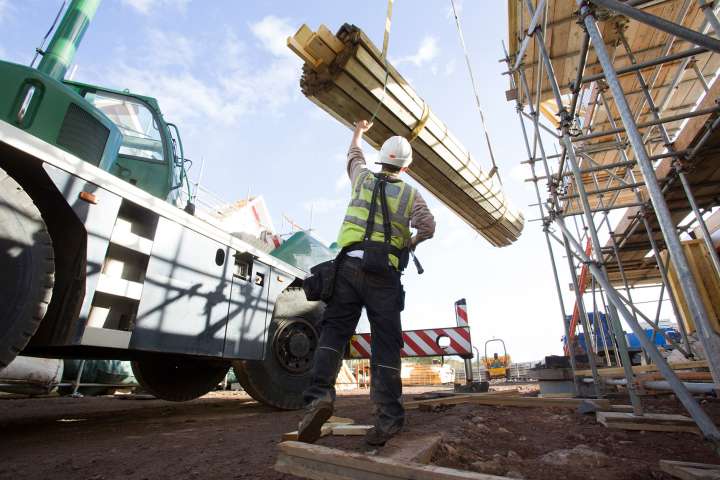A construction project is not a one-man job. Rather, it involves the hard work of several trained professionals who provide their services in multiple domains.
Typically, a construction project has an upper management team that plans, designs, and supervises all processes. Meanwhile, lower management involves skilled craftsmen and general workers who finish tasks like plumbing and woodwork.
If you’re looking to kickstart a career in the construction industry, you may come across several job titles with different requirements. You can find a range of job titles with different salaries in the construction industry, most of which are covered in detail here in this Bridgit article.
Let’s have a look at the top 14 construction job titles.
The top job titles in the construction industry
The construction industry is expected to reach around $15000 billion in 2024, so there are plenty of job opportunities available.
Here is the list of the 14 most prevalent construction job titles.
1. Civil engineer
Civil engineers are the masterminds behind planning and designing the infrastructure of bridges, roads, buildings, airports, and dams. They also estimate the materials required to complete a construction project.
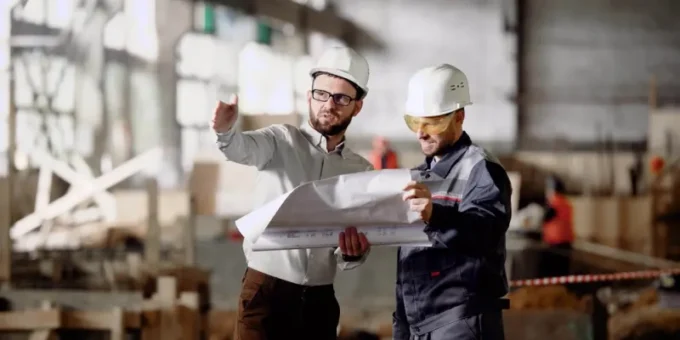
These professionals also analyze the environmental impacts of raw materials. To work as a professional civil engineer, you must have a state license and bachelor’s degree.
2. Structural engineer
Structural engineers are responsible for the structural integrity of roads, bridges, and buildings. They evaluate whether or not a design is fit by calculating risks and writing reports. These professionals also reinforce and maintain construction projects.
3. Safety engineer
Safety engineers design processes to offer the construction crew a safe working space. They ensure that every construction process abides by legal regulations. This can encompass multiple inspections and permits.
A safety engineer also evaluates risks related to:
- Machinery
- Safety equipment
- Chemicals
- Illnesses
- Furniture
Creating a safe working space is crucial for the success of any construction project. Construction workers face various hazards, including falls, electrical shocks, and exposure to hazardous materials. By implementing safety measures and procedures, safety engineers can minimize the risks and ensure that workers can perform their duties without fear of injury or harm.
A safe working space also boosts worker morale and productivity, as workers feel more comfortable and confident in their environment. In summary, safety engineers play a vital role in construction projects by ensuring that workers have a safe and healthy working space, which is essential for completing the project successfully.
4. Construction engineer
Construction engineers plan, design, and manage various infrastructure projects like civil engineers. They are present onsite to supervise the construction process, which may include:
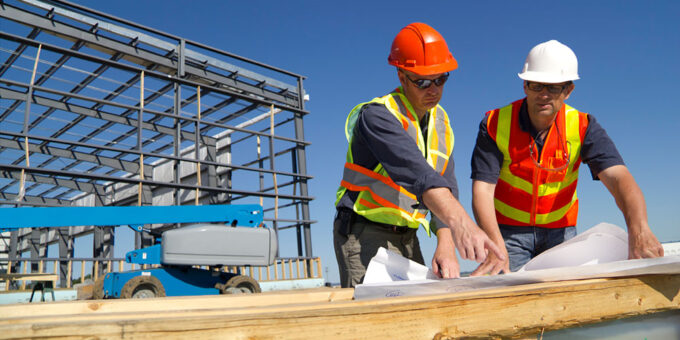
- Utilities
- Bridges
- Roads
- Railroads
5. Architect
Architects create building designs and coordinate with the construction team throughout the building process. They draw highly detailed, safe, functional, and appealing sketches.
These professionals also ensure that the project aligns with the client’s needs and complies with federal and state regulations.
6. Senior construction manager
Also known as site managers, senior construction managers monitor construction teams. They also communicate with project partners, including service providers and suppliers.
Some other job responsibilities of construction managers include:
- Managing project schedules
- Monitoring material orders and delivery
- Reporting to upper-level managers about the scope and status of the project
- Interacting with clients
- Recording compliance protocols
- Recruiting subcontractors
In addition to their core responsibilities, construction managers enhance their efficiency through the adept use of tools for estimating schedules and costs, as well as leveraging advanced construction accounting software. By employing these tools, they can accurately forecast project timelines and expenses, facilitating informed decision-making and effective resource allocation. This tech-savvy approach ensures streamlined project management and optimal financial control while maintaining seamless communication with project partners and stakeholders.
7. Superintendent

Construction site superintendents manage everyday functions. They usually render services for onsite workers, such as:
- Recruiting skilled workers
- Managing construction schedules
- Communicating onsite safety rules
- Monitoring rules enforcement
- Negotiating project timelines
- Evaluating the work done by workers and subcontractors and approving it
- Managing material and labor costs
- Maintaining material inventory
8. Building services director
As the name describes, building services directors ensure proper installation of building services, such as:
- Electricity, gas, and water
- Heating, lighting, and air conditioning
- Escalator systems or elevators
- Security systems
They also manage the design of these services and monitor installation processes.
9. Construction assistant
Construction assistants play their part in completing projects by organizing and managing construction sites. Their everyday tasks include:
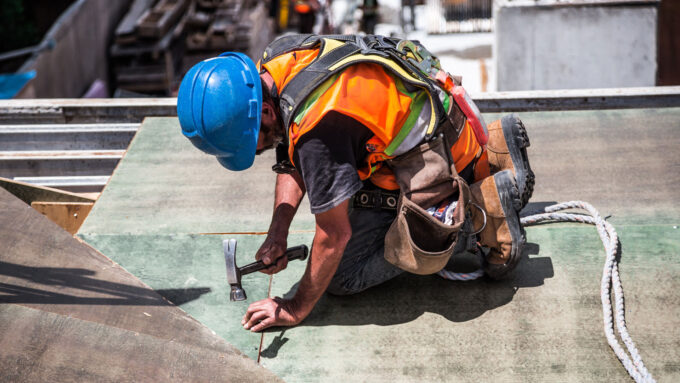
- Cleaning building sites
- Preparing raw materials for use like wood and pipes
- Removing waste
- Preparing construction surfaces or sites for work
- Helping in leveling, measuring, and spacing
10. Project manager
Project managers play a vital role in managing construction projects. They oversee all processes starting from designing and planning to finishing the project.
The primary role of a project manager is to ensure on-time delivery of the project. Additionally, they also ensure that projects stay within budget. Some everyday tasks of a project manager are as follows:
- Recruiting a construction manager
- Assisting in project planning and design, including scheduling, material estimates, and staffing
- Setting benchmarks
- Supervising the construction manager and daily onsite operations
- Managing final stages of construction projects, including building opening and final inspections
- Monitoring project timelines
- Interacting with stakeholders and other management
11. Assistant project manager
Assistant project managers help their project managers with completing different tasks, such as:

- Procuring raw materials
- Starting and completing contracts
- Implementing safety measures
- Managing budgets
12. General laborer
General laborers are experts who work hard and are expected to bear immense physical strength. Their job requires them to lift heavy materials, work on heavy machinery, and deal with adverse weather conditions.
These laborers complete various physical tasks, such as:
- Removing junk and debris from construction sites
- Preparing materials and worksites
- Using construction tools, including jackhammers
- Directing heavy traffic around building sites
- Organizing, unloading, and loading materials
- Setting up temporary work structures like scaffolding
13. Equipment operator
Equipment operators are professionals who can steer and operate construction site vehicles like dump trucks, excavators, concrete mixers, and cranes. They also render the following services:
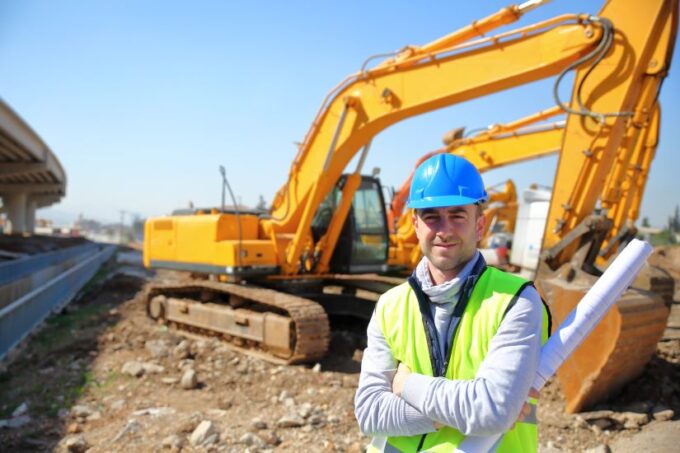
- Comprehending and sticking to safety guidelines for building equipment
- Maintaining construction equipment
- Checking if all equipment is in safe and optimal working condition
14. Skilled construction workers
Skilled construction workers are experts trained to complete specific tasks on construction sites. These workers have multiple distinct skill sets and can be classified as:
- Carpenters – They make and install wooden components and structures on building sites. These structures may include cabinets, windows, doors, etc.
- Electricians – They use special equipment and tools in construction projects to install, maintain, and repair electrical systems.
- Plumbers – These experts can install, maintain, and repair drainage systems, pipes, fixtures, and fittings inside commercial and residential buildings.
- Painters – They are experts at painting the exterior and interior of residential and commercial sites.
- Roofers – They specialize in installing and maintaining roofs for construction sites.
- Welders – These professionals can measure, assemble, fuse, fabricate, and attach metallic structures.
- Concrete Finishers – They are responsible for applying and finishing concrete surfaces, ensuring smoothness, durability, and visual appeal.
8. Masons – These skilled workers are adept at laying bricks, stones, and other masonry materials to construct walls, facades, and other structures, providing strength and architectural beauty.
9. HVAC Technicians – They install, repair, and maintain heating, ventilation, and air conditioning systems in buildings, ensuring optimal indoor climate control and comfort.
10. Landscapers – These professionals specialize in designing and maintaining outdoor spaces, including gardens, lawns, and hardscapes, contributing to the aesthetic appeal of construction projects.
If you’re considering a career in the construction industry, it’s essential to develop the necessary skills and qualifications for the job. The construction industry presents a plethora of opportunities for individuals possessing diverse skill sets and interests. Some key skills that can be valuable in the construction industry include strong problem-solving abilities, attention to detail, time management, teamwork, communication skills, and a strong work ethic.
Construction projects often involve tight deadlines and demanding work conditions, requiring individuals who are dedicated, reliable, and committed to delivering high-quality results. A strong work ethic is demonstrated through qualities such as punctuality, accountability, professionalism, and a willingness to go the extra mile to ensure project success. Employers highly value candidates who exhibit a strong work ethic, as it contributes to a positive work environment and helps maintain productivity and efficiency on construction sites.
By cultivating a strong work ethic, you can differentiate yourself from others and enhance your prospects for job opportunities and career advancement in the construction industry.
Final thoughts
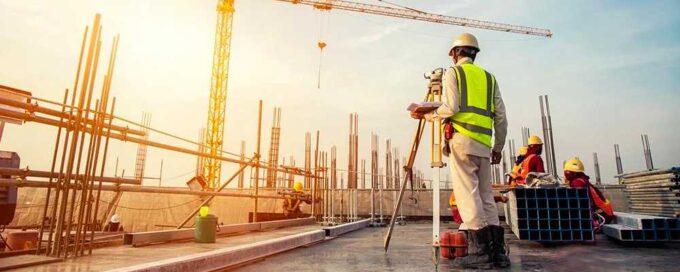
Construction projects require a team of highly motivated and hardworking individuals, who work closely and coordinate properly to successfully complete the project.
If you’re wanting to work with a construction company or are looking to change roles, you have a plethora of options to choose from, including project managers, architects, and superintendents. However, remember that you must have the required qualifications and skills to pursue a career in the construction industry. Do you need help covering an emergency expense? Consider applying for a car title loan to get money in no time at all!

